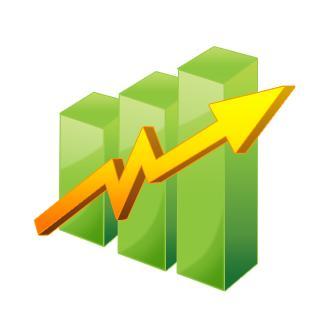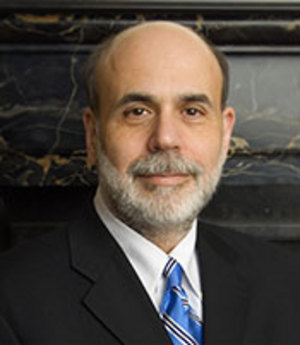| Home | About | Archives | RSS Feed |

@theMarket: Quarter Ends With a Bang
 The markets presented plenty of head fakes this quarter. In January, contrary to everyone's expectations, the gains of last year kept right on coming through most of the first quarter, only to hit a brick wall in March thanks to troubles in the Middle East followed by nature's one-two punch to Japan. Despite that, the indexes finished the first quarter with the best gains in over two decades.
The markets presented plenty of head fakes this quarter. In January, contrary to everyone's expectations, the gains of last year kept right on coming through most of the first quarter, only to hit a brick wall in March thanks to troubles in the Middle East followed by nature's one-two punch to Japan. Despite that, the indexes finished the first quarter with the best gains in over two decades.
The Dow racked up 742 points (6.4 percent), the S&P 500 Index gained 68 points (5.4 percent) while the NASDAQ closed up 128 points for a 4.8 percent gain. If we annualize those gains we could be looking at a 20 percent plus gain for the year, which puts my forecast of a 20-23 percent gain in 2011 right on target.
"It was a choppy quarter though," commented one client on Friday who lives in Dalton.
I agree. Clearly this market is exacting a price (higher stress and wear and tear on the nerves) for the gains we are making. I suspect that additional volatility is waiting for us as we continue to climb a wall of worry throughout this next quarter. Some of the concerns I believe will haunt us through the spring are the price of oil brought on by geopolitical turmoil, continued problems among European financial institutions and, of course, the end of QE II, which occurs in June.
Can the economy continue to grow without the multibillion dollar monetary stimulus that the Fed has been providing for well over a year? The economy appears to be growing and unemployment declining, but is that a function of real demand or simply a response to the Fed's easy money policies? How will the stock and bond markets react to an end to this stimulus?
Smarter people than I are expecting a rapid and disastrous response by the bond markets to the sunset of QE II. They believe that interest rates will immediately spike, disrupting what little lending is already occurring and thereby throwing the economy back into recession. I find that hard to believe.
I'm going to give our central bankers, led by Ben Bernanke, the benefit of the doubt. They read the same papers we do and are well aware of the fears of the markets. Is it really plausible that the Fed will step out of the game and simply watch from the bleachers if the doomsayers are right?
There is simply too much at stake and Ben Bernanke knows it. I believe the process of pulling out of the market will be a managed one. For those who pay attention to "Fed Speak," I maintain that process is already at work. Recently a number of Board Governors who have granted interviews advised the financial community that the Fed will be taking a more neutral policy position in regards to stimulus in the future.
That's not to say there won't be concerns and with them volatility. Skittish investors will always jump the gun, many times before they actually have the facts. In today's markets, trading on rumors is just as viable as trading on the facts. So prepare for some rough sailing; but I get ahead of myself.
As a portfolio manager, it's part of my job to fret and worry about what will be, instead of enjoying what is. And a rising market is what we can expect over the next few months. Sure, we can and will have down days, but I believe they will be short and shallow. Commodity stocks will lead, so make sure you have some exposure to those sectors, and if you haven't yet, get back into the stock market — now.
Bill Schmick is an independent investor with Berkshire Money Management. (See "About" for more information.) None of the information presented in any of these articles is intended to be and should not be construed as an endorsement of BMM or a solicitation to become a client of BMM. The reader should not assume that any strategies, or specific investments discussed are employed, bought, sold or held by BMM. Direct your inquiries to Bill at (toll free) or e-mail him at wschmick@fairpoint.net. Visit www.afewdollarsmore.com for more of Bill's insights.
| Tags: stocks, Federal Reserve |
@theMarket: Markets Are Going Higher
|
Fed Chairman Ben Bernanke's putting his faith in the market. |
The above headline may be a bold statement, especially when the averages are already at levels that surpass this year's stock-market highs. But the actions and words of the Federal Reserve Bank this week convinces me that stocks have substantial upside ahead of them.
As I predicted, this week was a big one for investors and the country. The mid-term election results and the resulting legislative gridlock in Washington most pundits expect leaves the Fed as our only hope in reviving the economy and reducing unemployment. (see yesterday's column "Don't Fight the Fed.")
The $600 billion in additional quantitative easing (QE II) and Chairman Ben Bernanke's Op-Ed piece in the Washington Post makes obvious that not only is the Fed targeting stronger growth in the economy but also higher prices in the stock market.
It is the first time in my career that a Fed chairman has explicitly targeted stocks as a tool to increase consumer spending, grow the economy and reduce unemployment.
Imagine my surprise when a day later, the central bank of Japan stated the very same thing but went a step further by also targeting real estate prices in its country.
This takes government support of the economy to an entirely new level in my opinion. During the financial crisis and its aftermath, the government (the Fed, U.S. Treasury and both the Bush and Obama administrations) has on several occasions provided a back stop to the markets. They took actions to save corporations, provided support for declining securities such as mortgage-backed securities, even money markets, and promised to support or bail out the U.S. financial markets with all the power at their disposal. It was one of the main reasons back in early 2009 that I turned bullish on the stock markets. I was betting on the government because they have much deeper pockets then the private sector and if they failed to fulfill their promise we were all doomed anyway.
This week's comments from Bernanke have taken that implicit promise of "support" a big step further. If I read this right, Bernanke is saying that consumers and corporations are still worried about the economy and their own finances. Higher stocks, according to Bernanke, will restore confidence as Americans see their savings rebound. That confidence could lead to addit

